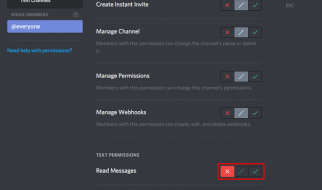Learning comes down to two things: repetition, and connecting new information to existing knowledge.
The ultimate aim of learning is to apply what you learn when it matters.
Information is easy to access when there are many strong pathways to that information.
That means you need to think about something often enough to build strong connections to it in your brain.
It makes retrieving/remembering easier.
Think about something often enough and its recall can become automatic.
Everything you learn is not necessarily lost, but sometimes it becomes harder to find if you don?t remember it enough or build better pathways to that information.
Proper encoding of knowledge in your brain can often require multiple uses of the information over a few days.
The person who says he knows what he thinks but cannot express it usually does not know what he thinks. ? Mortimer Adler
A better way to learn, process, retain and remember information is to learn half the time, and share half the time.
Learn for 50% of the time and explain what you learn for 50% of the time.
Example, instead of completing a book, aim to read 50 percent and try recalling, sharing, or writing down the key ideas you have learned before proceeding.
You could even apply it to the chapters instead of the whole book.
The 50/50 learning method works really well if you aim to retain most of what are learning.
The mind is like a muscle.
The more it?s exercised, the better it gets and the stronger it becomes.
?Use it or lose it? very much applies to the mind.
For thousands of years, people have known that the best way to understand a concept is to explain it to someone else.
?While we teach, we learn,? said the Roman philosopher Seneca.
Your ideas will never be more effective than your ability to make others grasp them.
According to research, learners retain approximately 90% of what they learn when they explain/teach the concept to someone else, or use it immediately.
When you share, you remember better. It challenges your understanding and forces you to think. So, if nothing else, teach others for your own sake.
Don?t worry about whether you?ve hit ?expert? status yet, or how big (or small) your audience is.
You don?t even need an audience to use this method.
Even if you have an audience of zero, you can start blogging about new ideas you come across.
You could start a podcast, create a video and share the knowledge you?re learning on YouTube.
You?ll reap the benefits in your own learning progress, whether you?re helping others (yet) or not.
Focus on what you are learning right now and how you can share those lessons in a way that will help others or yourself.
I use this method to write everyday.
And I share most of what I learn here on Medium.
This approach has a lot in common with the Feynman technique:
Learn by teaching someone else a topic in simple terms so you can quickly pinpoint the holes in your knowledge.
It?s a mental model coined by Nobel-prize winning physicist Richard Feynman.
Known as the ?Great Explainer,? Feynman was revered for his ability to clearly illustrate dense topics like quantum physics for virtually anybody.
The Feynman Technique is laid out clearly in James Gleick?s biography, Genius: The Life and Science of Richard Feynman.
Force yourself to recall by writing your own summaries/bullet points
Writing down what you learn every now and then has proven to be a great way to cement new knowledge in your mind.
Every time you learn something new, read a chapter of your favourite book or listen to something life-changing, take a quick second to jot down what you remember.
An even better approach is to force yourself to jot something down when you are halfway through the content.
Psychologists call it the ?testing effect?.
When you keep trying to remember a piece of information, you interrupt the forgetting process and help cement the memory of that information into your brain.
In his book, The Little Book of Talent: 52 Tips for Improving Your Skills, Daniel Coyle explains:
Research shows that people who follow strategy B [read ten pages at once, then close the book and write a one page summary] remember 50 percent more material over the long term than people who follow strategy A [read ten pages four times in a row and try to memorize them]. This is because of one of deep practice?s most fundamental rules: Learning is reaching. Passively reading a book ? a relatively effortless process, letting the words wash over you like a warm bath ? doesn?t put you in the sweet spot. Less reaching equals less learning.
On the other hand, closing the book and writing a summary forces you to figure out the key points (one set of reaches), process and organize those ideas so they make sense (more reaches), and write them on the page (still more reaches, along with repetition). The equation is always the same: More reaching equals more learning.
And for better results when you choose to write your own summaries, use the good old pen and notebook.
Researchers say using pen and paper creates a stronger cognitive link to the material than merely typing because typing happens far too quickly for retention to take place.
In one study, researchers asked university students to take notes while watching TED talks.
They found out later that students who had used laptops performed worse on conceptual questions, even though they had been able to write down more words than those who took notes by hand.
So if you?re trying to remember what you read or if your goal is to fully comprehend and remember what you are learning, you?ll be better off using a notebook and pen.
And you can always go back to the source content to read more or refresh your mind if you forget.
Closing thoughts
If you want to retain even the simplest concepts, it pays to explain it to your audience, share it with someone else, write it down, or start a discussion about it.
The ultimate test of your knowledge is your capacity to transfer it to another.
You can apply the 50/50 rule in all fields of learning.
Not only is this a wonderful recipe for learning but it?s also a different way of thinking that can help you understand ideas better.

